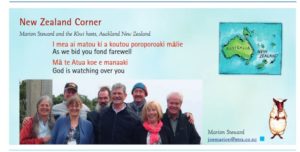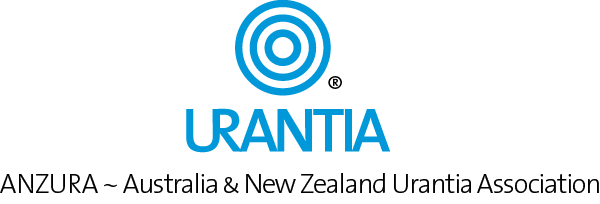New Zealand Corner – Autumn 14
Keen readers of The Arena may recall that one year ago New Zealanders were pre-paring to fill out their Census forms, and I expressed some interest in the results regarding the religious question. These results were finally released last Decem-ber, and, as many predicted, the percentage selecting No Religion did indeed rise, from 32% in 2006 to 38.5% in 2013. Added to the 4% who objected to answering, and the 8% who did not answer at all, this came to just over 50%, a somewhat depressing number. Various Christian denominations make up nearly 30% and unspecified Christians nearly 15%. Due to the rich ethnic diversity in Auckland in particular, where there are over 200 different ethnic groups, (more than New York!) there are also rising numbers of Hindus, Sikhs, Buddhists and Muslims.
Statistics like this, however, often do not reveal the whole truth. The question in the Census asks specifically about religious affiliation, not about belief in God.An independent survey conducted in 2008 found that 72% of the population believe in God or a higher power, 15% are agnostic and 13% are atheist.
This paints a far better picture of the inner life of New Zealanders, and indicates that there is fertile ground for a message of spiritual hope regarding the Fatherhood of God and the Brotherhood of Man.
Our study group have been reading Paper 195 recently, and contemplating the ‘call to the adventure of building a new and transformed human society by means of the spiritual rebirth of Jesus’ brotherhood of the kingdom” (p.2084).
But what to do? Where to start? We hope to begin discovering answers to these questions at the ANZURA conference being held in Auckland in October, and we invite you all to come and join us, as we contemplate the tools we have been given to help us in this work, and explore the small steps we can take in our individual spheres that can lay the foundations of this rebirth.
Marion Steward
New Zealand Corner – Winter 14
Winter has struck with a vengeance over the past week or so, and most of New Zealand has been shivering in very low temperatures, and experiencing frequent torrential rain. It’s the hibernation time of year, when we can reflect on aspects of our lives that perhaps need to change, and consider new things that can be brought to life with the coming of spring.
Our upcoming National Election in September also encourages reflection, of a sort, as people weigh up the various promises for change offered by the different political parties, and decide which have most value for them individually, for their family, and for their community.
What does The Urantia Book have to say about political activity? There are a number of references in the book which are of interest. I particularly like the practice described in Paper 72 “Government on a Neighbouring Planet”, of having legislative bodies consisting of elder statesmen, and of appointing retiring executives as advisors to their successors. In New Zealand, we tend to send our former Prime Ministers away to work as ambassadors in other countries, or, in one notable case, for the United Nations. Others return to normal life, and it does seem a waste of valuable experience to allow such people to sink back into relative obscurity.
The Book in general seems to support representative government. Self-government is described as the highest kind, where those in leadership positions truly deserve such responsibility. Unfortunately, the day when
..political service is esteemed as the highest devotion of the citizenry…[Paper 71:3.12, page 803:12]
is not nigh in New Zealand. In the 2013 Readers’ Digest Survey of the 50 most trusted professions, politicians came in at No. 46, in between insurance salespeople and sex workers.
However, one advantage to being a strongly secular society is that a budding politician’s religious affiliation is not of any great consequence, and does not as a rule become a factor during our election campaigns. This aligns well with the Book’s statement that
…Religion achieves its highest social ministry when it has least connection with the secular institutions of society. [Paper 99:0.1, page 1086:1] .
So, when the day dawns, or rather, when the night settles in and the counting is finished, and the result is perhaps not what I might wish, I will remind myself of this statement:
Popular elections may not always decide things rightly, but they represent the right way even to do a wrong thing. [Paper 71:2.8, page 802:2]
New Zealand Corner – Summer 2014


